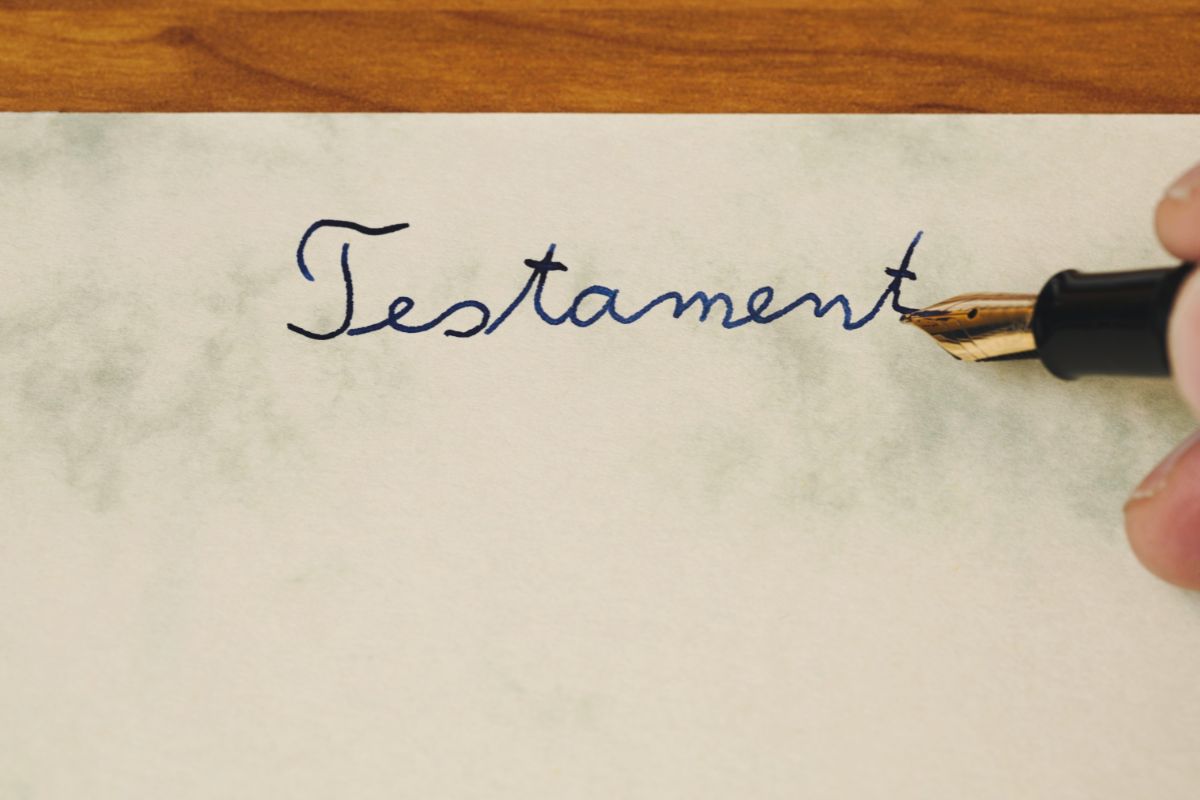How Do I Make Sure My Will Is Valid?
A will is a crucial legal document that outlines the distribution of your assets and belongings after your death. Ensuring your will is legally binding is essential to confirm that your final wishes are honoured and that your loved ones are taken care of. This article provides a comprehensive overview of the legal requirements for wills, including the proper execution, signing, and witnessing process according to regulations. Additionally, ensuring the will is valid is important to avoid issues in probate court.
Understanding Legal Requirements for a Legally Valid Will
To confirm the validity of a will, it is essential to understand the legal requirements that govern its creation. Each jurisdiction may have specific rules and regulations, but there are common elements typically necessary for a will to be considered legally valid.
If significant changes are needed, it is advisable to create a new will to ensure legal clarity and revoke any previous wills. Relationships, including civil partnerships, can affect the validity of a will and should be considered when creating or updating a will.
Basic Requirements
Sound Mind and Legal Age: The testator (the person making the will) must be of sound mind and at least 18 years old. This ensures they understand the nature and consequences of creating a will, as well as the assets they own and the individuals they wish to include as beneficiaries.

Written Document: A will must be in writing, whether typed or handwritten. Handwritten wills, known as holographic wills, are recognised in some jurisdictions but must meet specific criteria, such as being entirely in the testator’s handwriting and signed by them. Individuals can create their own will without a lawyer, but must ensure it meets all legal requirements to be valid.
Clear Intentions: The will must clearly express the testator’s intentions regarding the distribution of their assets and belongings.
Witnessing and Signing
Witness Presence: The testator must sign the will in the presence of witnesses. These witnesses must also sign the will to confirm they observed the testator’s signature.
Witness Qualifications: Typically, at least two witnesses are required, and they should not be beneficiaries or closely related to the testator. Their role is to verify the testator’s mental capacity and the voluntary nature of their actions.
Attestation Clause: While not always required, an attestation clause is a statement that witnesses sign, affirming they saw the testator sign the will and believe the testator had the necessary mental capacity. This clause adds an extra layer of evidence to support the will’s validity.
After the will is created, the executor will need to locate the will left by the deceased person and follow the necessary steps to determine its validity.
Jurisdiction-Specific Requirements
Different jurisdictions may have additional requirements, such as notarisation, the inclusion of specific clauses or language, or the use of particular forms. It is crucial to consult with a solicitor who specialises in estate planning to ensure the will meets all the necessary legal requirements in the jurisdiction where it will be probated.
The probate service grants authorisation to manage the estate of a deceased person and keeps records of wills and grants of probate.
Proper Execution and Signing of the Will
Proper execution and signing of a will are essential to confirm its legal validity and enforceability. The following steps should be diligently followed to avoid the will being deemed invalid:
Appointing a guardian for minor children in a will grants them significant legal authority to care for the children if the parents are no longer able to do so.
Steps to Properly Execute a Will
1. Capacity: The testator must have the mental capacity to understand the nature of their assets, the implications of their decisions, and the beneficiaries included in the will.
2. In Writing: The will must be in writing, providing a clear record of the testator’s wishes and helping prevent disputes among beneficiaries.
3. Signature: The testator must sign the will at the end of the document, affirming that the will accurately reflects their intentions.
4. Witnesses Present: It is crucial to have witnesses present during the signing. The number of witnesses and their qualifications can vary by jurisdiction, but most require two disinterested witnesses who are not beneficiaries.
5. Attestation Clause: Including an attestation clause, though not always required, helps validate the will’s authenticity.
By following these guidelines, individuals can confirm that their wills are properly executed and signed, minimising the risk of disputes and challenges to their validity.
Witnessing the Will According to Regulations
Witnessing the will according to regulations is a crucial step in confirming its legal validity and authenticity. The presence of witnesses provides independent verification of the testator’s intent and deters potential fraud or undue influence.
Requirements for Two Witnesses to Sign
Number of Witnesses: Typically, two or more witnesses are required. These witnesses should not be beneficiaries or closely related to the testator.
Witness Role: Witnesses must observe the testator signing the will and sign it themselves in the testator's presence. They confirm that the testator appeared to be of sound mind and free from undue influence.
Jurisdiction-Specific Rules: Some jurisdictions may have additional requirements for witnesses, such as age, mental competence, or criminal record restrictions.
Failure to comply with witnessing requirements can result in the will being deemed invalid. To avoid such complications, it is advisable to consult with a solicitor who specialises in estate planning.
Ensuring Your Final Wishes are Honoured
Ensuring your final wishes are honoured is crucial for leaving a lasting legacy that reflects your values and beliefs. Taking the necessary steps to confirm your will is valid and will be upheld can prevent misunderstandings and disputes among beneficiaries. Here are the key considerations to ensure your final wishes are honoured:
Clearly State Your Wishes
Be specific and detailed in outlining how you want your assets to be distributed and any instructions for your funeral or memorial service. Clear communication in your will can prevent misunderstandings and disputes among beneficiaries.
Regularly Review and Update Your Will
Life circumstances can change over time, so it is important to ensure your will reflects your current wishes. Review and update your will periodically, especially after major life events such as marriage, divorce, the birth of children, or the death of a loved one.
Entering a civil partnership can impact existing wills, so it is important to update the will to ensure that civil partners have the proper rights to inherit.
Keep Your Will Safe and Accessible

Store the original copy of your will in a secure and accessible place, and inform your executor and loved ones of its location. Consider keeping copies in a safety deposit box or with your solicitor.
Choose a Trustworthy Executor
Choosing the right executor is a vital step in ensuring your will is properly executed. The executor plays a critical role in managing your estate and carrying out your final wishes. Consider the following qualifications and characteristics when selecting an executor:
Qualifications and Characteristics
Responsibility and Reliability: The executor should be responsible and reliable, able to manage your estate, pay debts, and distribute assets. This requires organisation, attention to detail, and the ability to handle complex tasks.

Impartiality: Choose an impartial executor, especially if there are potential conflicts among beneficiaries. An unbiased executor helps prevent disputes and ensures smooth estate administration.
Understanding of Financial Matters: While not a necessity, it's beneficial if the executor has some financial knowledge to manage assets, file tax returns, and handle financial tasks effectively.
Willingness and Ability: Ensure your executor is willing and capable of taking on the responsibility, understanding that the role can be time-consuming and stressful.
Legal and Professional Considerations
Legal Knowledge: While not mandatory, having some legal knowledge can be beneficial for an executor. They will need to navigate probate court, understand estate laws, and ensure all legal requirements are met. If your chosen executor lacks this knowledge, they can hire a solicitor to assist them.
Professional Executors: In some cases, it might be appropriate to appoint a professional executor, such as a solicitor or a trust company. This can be particularly useful for complex estates or when impartiality is critical. Professional executors charge fees for their services, so weigh this cost against the benefits they offer.
Estate Size and Complexity: The size and complexity of your estate can influence your choice of executor. Larger, more complex estates may benefit from having an executor with experience in handling such matters.
Conflict of Interest: Avoid selecting an executor who may have a conflict of interest. This includes individuals who stand to benefit significantly from the estate or those who might have contentious relationships with other beneficiaries.
By carefully considering these factors and discussing your wishes with your chosen executor, you can ensure that your estate will be managed effectively and your final wishes will be honoured. Selecting a trustworthy executor provides peace of mind, knowing that your loved ones will be taken care of and your legacy will be preserved.
Frequently Asked Questions
What happens if I don't meet the legal requirements for creating a valid will?
If the legal requirements for creating a valid will are not met, the will may be deemed invalid and not recognised by the courts. This means that the individual's property and assets may not be distributed according to their wishes.
Can I create a handwritten will, or does it need to be typed?
Handwritten wills, known as holographic wills, may be accepted in some jurisdictions if they meet specific requirements. However, it is generally recommended to have a typed will to minimise the risk of errors or challenges to its validity.
How many witnesses are required to sign my will?
A will typically requires the signatures of two witnesses to be considered valid. These witnesses should not be beneficiaries of the will and must be present at the time of signing.
What are some common mistakes people make when executing their wills?
Common mistakes people make when executing their wills include improper witness signatures, failing to update the will after major life events, not considering specific state laws, and neglecting to communicate the location of the will.
Can I include digital assets, such as online accounts and cryptocurrencies, in my will?
Yes, digital assets, such as online accounts and cryptocurrencies, can be included in a will. However, it is important to consult with legal professionals to confirm proper identification, valuation, and transfer of these assets upon your death.
Conclusion
Confirming the validity of a will involves understanding and adhering to legal requirements, properly executing and signing the will, and ensuring it is witnessed according to regulations. Awareness of the specific laws and guidelines governing wills is crucial to avoid potential disputes or challenges.
By following the correct procedures and obtaining the necessary witnesses, individuals can ensure that their final wishes are honoured and their loved ones are provided for after their passing. The importance of taking these steps becomes even more apparent when considering the potential consequences of an invalid will.
Without a valid will, one's wishes may be disregarded, causing confusion, conflict, and emotional turmoil among family members. The absence of a legally recognised will can lead to disputes over assets, guardianship of children, and the distribution of property, leaving loved ones vulnerable and uncertain.
By understanding and fulfilling the legal requirements for a valid will, individuals can safeguard their legacy and provide peace of mind for themselves and their loved ones.
For those needing professional assistance, will-writing services are available. However, it is important to choose certified firms that adhere to professional codes of practice to ensure a higher standard of service and protection for consumers.

